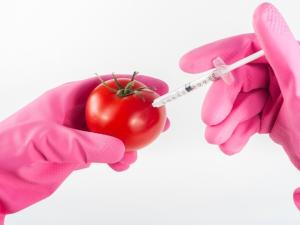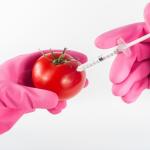What are GMOs?
Genetically Modified Organisms (GMOs) have been debated for many years. These are living organisms whose genetic material has been manipulated in a laboratory using genetic engineering techniques. The primary objective of gene modification is to create crops resistant to pests, diseases, and environmental factors. GMOs are becoming increasingly widespread, and their impact on the environment and human health has been a topic of concern. In this article, I want to take a look at the ethical debate pertaining to the use of GMOs.
Two Sides of the GMO Debate
The ethical debate surrounding the use of GMOs is centered on the question of whether it is morally justifiable to alter the genetic composition of living organisms. Critics argue that the use of GMOs is unethical because it involves tampering with the fundamental building blocks of life, and that such activities amount to assuming the role of a higher power by taking control over nature. Furthermore, they contend that the long-term effects of GMOs on the environment and human health are not yet fully understood, and that we should not be willing to risk causing irreversible harm.
On the other hand, proponents of GMOs argue that they are crucial to addressing the global food crisis. With a burgeoning population, the demand for food is increasing, and traditional farming methods are no longer sufficient. GMOs can help to increase crop yields and make food production more efficient. Additionally, they argue that the use of GMOs can reduce the need for harmful pesticides and herbicides, which can be detrimental to both the environment and human health.
Who Owns and Controls the GMOs
The use of GMOs also raises concerns about the ownership of genetic material. Companies that manufacture GMOs currently hold patents on the genetic material they produce. This implies that they have exclusive control over the use and distribution of the seeds. Critics argue that this creates a monopoly, which can lead to higher prices and limited access to seeds for farmers. Additionally, they assert that this limits the diversity of crops, which can be damaging to the environment and human health.
Even More to Debate
Another ethical concern surrounding the use of GMOs is the potential impact on biodiversity. GMOs, due to their resistance to pests and diseases, can outcompete native species and reduce biodiversity. This can have negative consequences for the environment, as it can destabilize ecosystems and reduce the resilience of natural systems.
Weighing the Pros and Cons of GMOs
Ultimately, the ethical use of GMOs depends on how they are used and regulated. While some argue that the use of GMOs is intrinsically unethical, others believe that they can be used responsibly and sustainably. It is important to consider the potential benefits and risks of GMOs, as well as their impact on the environment and human health. Furthermore, it is crucial to ensure that the use of GMOs is not monopolized by a single entity, and that access to genetic material is not restricted to a select few.
In Summary
In conclusion, the ethical use of GMOs is a multifaceted issue that requires careful consideration. While there are valid concerns about the impact of GMOs on the environment and human health, they can also provide benefits such as increased crop yields and reduced pesticide use. Ultimately, the use of GMOs must be guided by ethical principles, and we must ensure that their use is sustainable and does not harm the environment or limit access to genetic material.
What are your thoughts on this debate between the use of GMOs? Please leave your opinion in the comments below. Thank you for your time reading this article.













